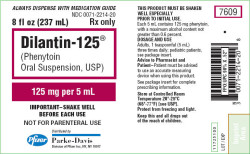 Dilantin (Phenytoin) is one of the most commonly prescribed antiepileptic medications in the United States, but it has been criticized numerous times for severe side effects.
Dilantin (Phenytoin) is one of the most commonly prescribed antiepileptic medications in the United States, but it has been criticized numerous times for severe side effects.
Among the most devastating complications is Stevens Johnson Syndrome (SJS), an skin condition that causes red or purple skin lesions that causes the skin to later peel off.
If you are taking Dilantin or other medication, this article will help to explain what to expect with a Stevens Johnson Syndrome prognosis.
Stevens Johnson Syndrome Prognosis
SJS Syndrome is a rare allergic reaction to a medication such as Dilantin. Dilantin has been linked to Stevens Johnson Syndrome on multiple occasions, and is one of the commonly associated drugs with this condition. Often, patients experience flu-like symptoms and seek antibiotics to treat the flu, not knowing the condition will worsen.
SJS causes the skin to appear as though it is melting off the patient, which exposes inner tissue and muscle to the possibility of infection. Stevens Johnson Syndrome prognosis typically progresses into major life threatening conditions that require hospitalization.
It is important to note that SJS syndrome is specifically caused by an adverse reaction to one or more medications, and will occur within the first two to eight weeks of starting the medication.
The first stage in the Stevens Johnson Syndrome prognosis include flu-like symptoms, like nausea and fever. After a week of these symptoms, red or purple skin lesions will appear and cause the patient’s skin to peel off in sheet.
At this time, patients often realize that the don’t just have the flu and are often times hospitalized due to the severity of their SJS syndrome. Due to the nature of SJS Syndrome, patients are often treated in the burn units of hospitals and require skin grafts.
While receiving treatment, patients often need assistance in eating and fluid retention and need to be monitored constantly for worsening conditions. SJS Syndrome is potentially fatal as this condition can inflict organ damage, permanent skin damage, and vision damage.
Due to how quickly the severity of Stevens Johnson Syndrome prognosis progresses, patients who start experiencing adverse side effects after taking a medication such as Dilantin should talk to their physicians as quickly as possible.
Dilantin Stevens Johnson Syndrome
SJS is an allergic reaction specifically caused by medication, but it is unknown what medications trigger this condition or which patients it may occur in.
Steven Johnson syndrome is an extremely rare condition, with less than a 1,000 cases diagnosed per year in the United States, and many physicians are unaware of the initial SJS syndrome symptoms. Additionally, because SJS Syndrome is rare, many drug companies omit warnings of the reaction from their labels.
A number of Dilantin SJS lawsuits have been filed against manufacturer Pfizer as result, alleging product liability charges. Dilantin was approved by the FDA in 1953, to treat grand mal seizures and a number of other epileptic conditions.
But ever since its approval, Stevens Johnson Syndrome has been diagnosed in numerous patients. Dilantin has been named as the primary causes of SJS, in at least 100 different lawsuits alleging Stevens Johnson Syndrome or Toxic Epidermal Necrolysis (TEN).
In one example from October 2010, a Dilantin SJS lawsuit was filed against Pfizer and generic Dilantin manufacturers Mylan Pharmaceuticals and Baxter Pharmaceuticals. The lawsuit alleged that nine-year-old patient, Jesse J. died after taking Dilantin for less than a month. The Dilantin SJS lawsuit was settled for $3.78 million from Pfizer.
Do YOU have a legal claim? Fill out the form on this page now for a free, immediate, and confidential case evaluation. The SJS attorneys who work with Top Class Actions will contact you if you qualify to let you know if an individual lawsuit or Dilantin class action lawsuit is best for you. [In general, Dilantin lawsuits are filed individually by each plaintiff and are not class actions.] Hurry — statutes of limitations may apply.
ATTORNEY ADVERTISING
Top Class Actions is a Proud Member of the American Bar Association
LEGAL INFORMATION IS NOT LEGAL ADVICE
Top Class Actions Legal Statement
©2008 – 2026 Top Class Actions® LLC
Various Trademarks held by their respective owners
This website is not intended for viewing or usage by European Union citizens.
Get Help – It’s Free
Help for Victims of Stevens Johnson Syndrome
If you or a loved one were diagnosed with Stevens Johnson Syndrome (SJS) or toxic epidermal necrolysis (TEN) after taking a prescribed or over-the-counter medication, you may be eligible to take legal action against the drug’s manufacturer. Filing an SJS lawsuit or class action lawsuit may help you obtain compensation for medical bills, pain and suffering, and other damages. Obtain a free and confidential review of your case by filling out the form below.
An attorney will contact you if you qualify to discuss the details of your potential case at no charge to you.
Oops! We could not locate your form.













One thought on Dilantin Use May Lead to Stevens Johnson Syndrome